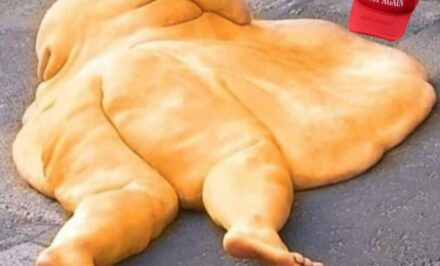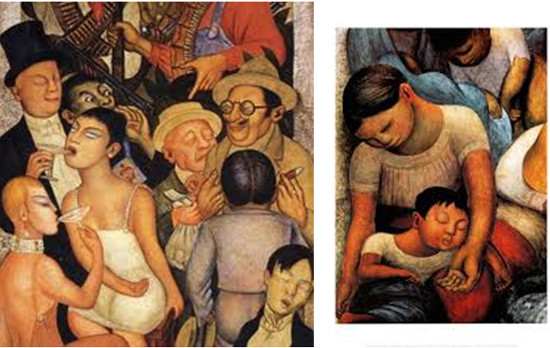
CAUTIONARY TALE. During the Mexican Revolution (1920-1920), muralist Diego Rivera created “Night of the Rich” & “Night of the Poor,” a fresco of his country’s struggle against a cruel, greedy, American-backed autocracy.
‘Let Them Eat Nothing’
Three blind mice of callous conduct
by Thomas Adcock
Copyright © 2014 – Thomas Adcock
NEW YORK, near America
Like much of the third world, the United States is ruled by a trinity of plutocrats, corporate oligarchs, and political hirelings. As we may conclude from the horrors of history, such confederation is the classic story of three blind mice: an imperious Rodentia unable to envision the consequences of their callous conduct. They blunder forward in simple-minded pursuit of profit and power, to the ultimate detriment of themselves and their countrymen—and increasingly in the case of my country, to democracy.
Selfishness and self-congratulation among a problematic élite leads, almost inevitably, to rebellion on the part of those with little or nothing to lose. National circumstances will vary—and stupidity will play a familiar rôle— but hubris and greed are the universal foundations of societal unrest. Witness the news today from Egypt, Syria, Venezuela, Ukraine, and Thailand; drill down past the headlines, to where the ordinary people live—in moody resentment.
And consider an episode from yesteryear: the violent eighteenth-century revolution that birthed America and humbled Great Britain, then the world’s most important economy and master of the haughtiest military machine ever known. Today, conditions are ripe for another social upheaval here—here, in the world’s oldest sustained democracy. This time, the enemies are homegrown.
There is a putrefying greed among America’s ultra-rich—one percent of the populace that owns forty percent of the national wealth, and grasping daily for control of the balance. Greed alone has toppled many a nation throughout history. Now add to greed a classic plutocratic impulse: contempt for the poor, condescension for the bourgeois. Add as well aid and comfort of mass media that offer only tepid disquisitions on economic injustice, and too often serve as a bodyguard of distractions from the crime of social devolution.
Thus has America been driven to a precipice. We have had fair warning:
• “We must make our choice. We may have democracy, or we may have wealth concentrated in the hands of a few, but we cannot have both.”
— U.S. Supreme Court Justice Louis Brandeis (1856-1941)
• “Can you tell me, in a world that is flagrant with the failures of democracy, what there is particularly immortal about yours?
— “The Napoleon of Notting Hill (1904)” by G.K. Chesterton
• “In a society governed passively by free markets and free elections, organized greed always defeats disorganized democracy.”
— “Griftopia (2010)” by Matt Taibbi
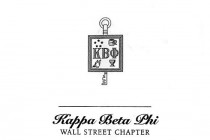
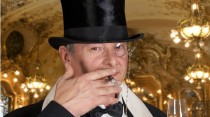 One evening in January 2012, New York journalist Kevin Roose and his rented tuxedo walked into the posh St. Regis Hotel, a short stroll from Manhattan’s Central Park. Mr. Roose’s purpose: to gather material for a book, by crashing an annual black-tie gathering of tycoons—white, male, sexagenarian-plus—belonging to a secret Wall Street fraternity called Kappa Beta Phi. Whilst dining on petits fours and racks of lamb, in between copious servings of Champagne and well-aged whiskey, the tycoons offered formal welcome to newly inducted members—those togged out in requisite gold leotards, bouffant wigs, and sequined skirts—and enjoyed a program of variety acts showcasing fraternal humor.
One evening in January 2012, New York journalist Kevin Roose and his rented tuxedo walked into the posh St. Regis Hotel, a short stroll from Manhattan’s Central Park. Mr. Roose’s purpose: to gather material for a book, by crashing an annual black-tie gathering of tycoons—white, male, sexagenarian-plus—belonging to a secret Wall Street fraternity called Kappa Beta Phi. Whilst dining on petits fours and racks of lamb, in between copious servings of Champagne and well-aged whiskey, the tycoons offered formal welcome to newly inducted members—those togged out in requisite gold leotards, bouffant wigs, and sequined skirts—and enjoyed a program of variety acts showcasing fraternal humor.
An example of Kappa Beta Phi comedy—according to excerpts from Mr. Roose’s freshly published book, “Young Money”—was a dubious joke told by Paul Queally, a multi-millionaire executive with the private-equity firm Welsh, Carson, Anderson & Stowe:
Question: What’s the difference between Hillary Clinton and a catfish?
Answer: One has whiskers and stinks, and the other is a fish.
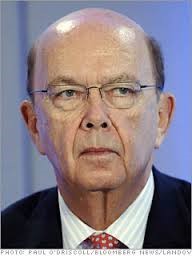 President—or “Grand Swipe”—of the hush-hush, yuk-it-up fraternity is Wilbur L. Ross, a New York-based venture capitalist, a professional title known among the American peasantry as vulture capitalist. Year after year, Forbes Magazine lists him among its roll call of America’s four hundred wealthiest individuals. In mid-February, Mr. Ross joined a chorus of miffed multi-millionaires who object to impolite remarks about them, made by us lesser mortals. “The one percent is being picked on for political reasons,” Mr. Ross declared. Earlier, Mr. Ross’ fraternity brother and fellow vulture, Tom Perkins, submitted a letter to the Wall Street Journal newspaper noting the “parallels of fascist Nazi Germany (sic) to its war on its ‘one percent,’ namely its Jews, to the progressive war on the American one percent, namely the ‘rich.’” Whether or not the Journal’s editors detected syllogistic baloney or anti-Semitic tone, the Perkins letter was duly published.
President—or “Grand Swipe”—of the hush-hush, yuk-it-up fraternity is Wilbur L. Ross, a New York-based venture capitalist, a professional title known among the American peasantry as vulture capitalist. Year after year, Forbes Magazine lists him among its roll call of America’s four hundred wealthiest individuals. In mid-February, Mr. Ross joined a chorus of miffed multi-millionaires who object to impolite remarks about them, made by us lesser mortals. “The one percent is being picked on for political reasons,” Mr. Ross declared. Earlier, Mr. Ross’ fraternity brother and fellow vulture, Tom Perkins, submitted a letter to the Wall Street Journal newspaper noting the “parallels of fascist Nazi Germany (sic) to its war on its ‘one percent,’ namely its Jews, to the progressive war on the American one percent, namely the ‘rich.’” Whether or not the Journal’s editors detected syllogistic baloney or anti-Semitic tone, the Perkins letter was duly published.
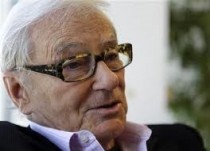 Around the same time Messrs. Ross and Perkins revealed their delicate sensibilities, John J. Mack called for an end to rude accounts of shenanigans executed by Jamie Dimon and Lloyd Blankfein, respective multi-millionaire chief executives of the investment banks JPMorgan Chase and Goldman Sachs. It’s time for people to “stop beating up on Lloyd and Jamie,” declared Mr. Mack, chairman of the investment bank Morgan Stanley whose net worth is said to be $100 million (€72.76 million).
Around the same time Messrs. Ross and Perkins revealed their delicate sensibilities, John J. Mack called for an end to rude accounts of shenanigans executed by Jamie Dimon and Lloyd Blankfein, respective multi-millionaire chief executives of the investment banks JPMorgan Chase and Goldman Sachs. It’s time for people to “stop beating up on Lloyd and Jamie,” declared Mr. Mack, chairman of the investment bank Morgan Stanley whose net worth is said to be $100 million (€72.76 million).
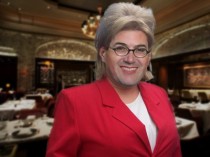 Mr. Roose tipped tycoons to his ruse when making notes of a skit performed by Warren Stephens, billionaire chief executive of the eponymous Stephens, Inc., a financial advisory firm established by his ancestors. Mr. Stephens is famous for appearing in wig and womanly attire at Kappa Beta Phi events. For his January 2012 performance, Mr. Stephens donned a hat decorated in the foremost American symbol of white racism—the Confederate flag—and sang a song about the Great Recession begun in 2008 by Wall Street criminals, as yet unindicted. Set to the tune of “Dixie,” a racist anthem of the Civil War era, Mr. Stephens warbled the refrain, “In Wall Street-land we’ll take our stand…”
Mr. Roose tipped tycoons to his ruse when making notes of a skit performed by Warren Stephens, billionaire chief executive of the eponymous Stephens, Inc., a financial advisory firm established by his ancestors. Mr. Stephens is famous for appearing in wig and womanly attire at Kappa Beta Phi events. For his January 2012 performance, Mr. Stephens donned a hat decorated in the foremost American symbol of white racism—the Confederate flag—and sang a song about the Great Recession begun in 2008 by Wall Street criminals, as yet unindicted. Set to the tune of “Dixie,” a racist anthem of the Civil War era, Mr. Stephens warbled the refrain, “In Wall Street-land we’ll take our stand…”
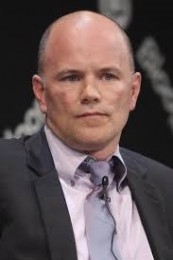 Michael Novogratz, a suspicious billionaire and former U.S. Army helicopter pilot with a shaved head who partners with the Fortress Investment Group, challenged Mr. Roose’s presence at the proceedings. Specifically, Mr. Novogratz demanded of the party crasher, “Who the hell are you?” Mr. Roose confessed, “I’m a reporter.” Whereupon, Mr. Novogratz gestured to Mr. Roose’s mobile telephone—its video and audio recorder were in action—and said, “Gimmie that or I’ll fucking break it.” Mr. Novogratz summoned his moneyed comrades to help escort Mr. Roose and his déclassé tuxedo to the street.
Michael Novogratz, a suspicious billionaire and former U.S. Army helicopter pilot with a shaved head who partners with the Fortress Investment Group, challenged Mr. Roose’s presence at the proceedings. Specifically, Mr. Novogratz demanded of the party crasher, “Who the hell are you?” Mr. Roose confessed, “I’m a reporter.” Whereupon, Mr. Novogratz gestured to Mr. Roose’s mobile telephone—its video and audio recorder were in action—and said, “Gimmie that or I’ll fucking break it.” Mr. Novogratz summoned his moneyed comrades to help escort Mr. Roose and his déclassé tuxedo to the street.
Soon thereafter, Mr. Roose drafted his bottom-line impressions, which appeared this way in the book released last week:
• [T]he upper ranks of finance are composed of people who have completely divorced themselves from reality. No self-aware and socially conscious Wall Street executive would have agreed to be part of a group whose tacit mission is to make light of the financial sector’s foibles. Not when those foibles had resulted in real harm to millions of people in the form of foreclosures, wrecked [retirement investment plans], and a devastating unemployment crisis.
• Kappa Beta Phi was, in large part, a fear-based organization. Here were executives who had strong ideas about politics, society, and the work of their colleagues, but who would never have the courage to voice those opinions in a public setting. Their cowardice had reduced them to sniping at their perceived enemies in the form of satirical songs and sketches, among only those people who had been handpicked to share their view of the world. …[T]he idea of a reporter making those views public had caused them to throw a temper tantrum.
•
While Mr. Roose explores the strange mindset of obscenely rich men, a longtime Congressional staff aide opens a window to the seemingly covert government they have constructed in Washington—a bureaucracy that Michael Lofgren calls “Deep State.” In a February 21 essay published on the website BillMoyers.com, he writes of “ineptitude” and “highly sinister aspects” of “another government concealed behind the one that is visible at either end of Pennsylvania Avenue—a hybrid entity of public and private institutions ruling the country.”
 For twenty-eight years, Mr. Lofgren was, by his own admission, a functionary of the Deep State, serving as a budget and military analyst, and as liaison between Congress and the American military-industrial complex—as well as the moneychangers of Wall Street. As a Fulbright scholar, he studied European history at the University of Basel in Switzerland. Since retiring from Congress in 2011, he has written caustically of the Washington years; of an old-line Republican Party turned “apocalyptic cult,“ of “feckless” and “craven” members of the Democratic Party, of an upstart Tea Party “filled with lunatics,” and of professional politicians who are “rotten captives of corporate loot.” On the subject of loot—and looters—Mr. Lofgren writes:
For twenty-eight years, Mr. Lofgren was, by his own admission, a functionary of the Deep State, serving as a budget and military analyst, and as liaison between Congress and the American military-industrial complex—as well as the moneychangers of Wall Street. As a Fulbright scholar, he studied European history at the University of Basel in Switzerland. Since retiring from Congress in 2011, he has written caustically of the Washington years; of an old-line Republican Party turned “apocalyptic cult,“ of “feckless” and “craven” members of the Democratic Party, of an upstart Tea Party “filled with lunatics,” and of professional politicians who are “rotten captives of corporate loot.” On the subject of loot—and looters—Mr. Lofgren writes:
Wall Street…supplies the cash that keeps the political machine quiescent and operating as a diversionary marionette theater. Should the politicians forget their lines and threaten the status quo, Wall Street floods the town with cash and lawyers to help the hired hands remember their own best interests. The executives of the financial giants even have de facto criminal immunity. …It is not too much to say that Wall Street may be the ultimate owner of the Deep State.
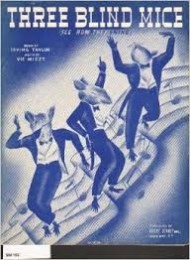
It could be argued that the Deep State, which Mr. Lofgren suggests took shape in the mid-1970s, fills a power vacuum created by a documentable rise in partisan polarization beginning at the same time. Last week at New York’s Hunter College, three visiting professors spoke to this wider picture in a lecture program titled “Anxieties of Democracy.” The evening’s tone was set by Ira Katznelson of Columbia University, who spoke of a troubling irony: “As democracy spreads throughout the world,” he said, “doubts have risen about democratic capacity—not values, but capacity.”
Professor Nolan McCarty of Princeton University offered hard numbers, based on Congressional roll call votes and related data, to document today’s near non-existent coöperation between America’s only two viable political parties. The partisan standoff, he said, is even greater than in the years preceding and immediately following the Civil War (1861-1865), which remains the bloodiest conflict of our nation’s history.
The “considerable polarization,” seen largely in the chaos of a Republican establishment subsumed by Tea Party yahoos, drove Professor Nathan Persily of Stanford University to the plaintive question, “Who’s the leader of the Republican Party? Boehner? Priebus? The Koch brothers? Karl Rove?”
My friend Alan Gotthelf—esteemed Manhattan attorney; periodic lunchtime comrade; and husband of Dr. Mayris P. Webber, sweetly touted as “America’s favorite epidemiologist” on his splendid personal website—noted the nexus of dollars and dispersion in Professor McCarty’s findings.
Political polarization “declined through the Depression, World War II, and the postwar period, but turned upward in the 1970s,” Mr. Gotthelf recounted in last week’s blog. “Maybe that’s not a surprise to even the casual observer, but [McCarty] also tracked income [inequities] through out history, using a variety of accepted measures. He reported that income [imbalance] parallels legislative polarization. They rise and fall together.”
Which may well be a profoundly nasty goal, conscious or otherwise, of three blind mice.
Last month, for instance, the Huffington Post website chronicled a remarkably Dickensian act of Congress under the headline, “Let Them Eat Nothing.”
Behaving with all the charm of a Kappa Beta Phi bash, the Republican Tea Party caucus, obsessed with austerity fundamentalism, pushed through a bill that drastically reduces nutritional support funds for some 850,000 households at or near poverty levels. This on top of last November’s draconian, across-the-board budget cuts affecting hungry Americans, ninety percent of whom are children, elderly or disabled—or military veterans maimed in specious wars that raised billions of dollars in revenues for U.S. corporations.
America’s poor are not the only citizens in danger of starving due to political polarization. We are all affected, we 99 percent; we are all impoverished.
“At a time [of] heated debate about continuing meat inspections and civilian air traffic control…our government was somehow able to commit $115 million to keeping the civil war going in Syria,” Mr. Lofgren wrote in his online essay, “and to pay at least £100 million to the United Kingdom’s Government Communications Headquarters to buy influence over and access to that country’s intelligence.”
He added, “Since 2007, two bridges carrying interstate highways have collapsed due to inadequate maintenance of infrastructure, one killing thirteen people. During that same period, the government spent $1.7 billion constructing a building in Utah that is the size of seventeen football fields…intended to allow the National Security Agency to store a yottabyte of information [equal to five hundred quintillion pages of text], the largest numerical designator computer scientists have coined. …They need that much storage to archive every single trace of your electronic life.”
•
History has a way of tearing down empires corrupted by the unmerciful, the greedy, the wicked, and the merely myopic. Nothing is forever, most assuredly not the pillars of the mighty.
There was Rome, for instance: sic transit gloria mundi. And there was the Union of Soviet Socialist Republics, and the German Democratic Republic. Turkey once ruled the Ottoman Empire; today, an ottoman is something we use to rest our feet.
According to a Pew Research survey conducted last year among 38,000 people in thirty-nine nations, a plurality of respondents in twenty-three of those states said they believe China will quite soon surpass the United States as the world’s biggest economy. If such is the world’s future, perhaps we may see a culling of America’s herd of multi-millionaires; perhaps then, the U.S. might regain a political esprit de corps, and something we might recognize as democracy.
Until then, I would encourage my fellow Americans to respect the advice of Gilbert Keith Chesterton (1874-1936), aphoristic author from the Mother Country:
“The sight of a millionaire is seldom, in the ordinary sense, an enchanting sight; nevertheless, he is in his way an enchanter. As they say in the gushing articles about him in the magazines, he is a fascinating personality. So is a snake. At least he is fascinating to rabbits; and so is the millionaire to the rabbit-witted sort of people that ladies and gentlemen have allowed themselves to become.”
Thomas Adcock
Thomas Adcock is America correspondent for CulturMag


